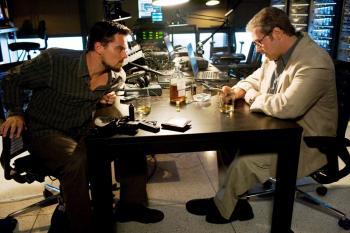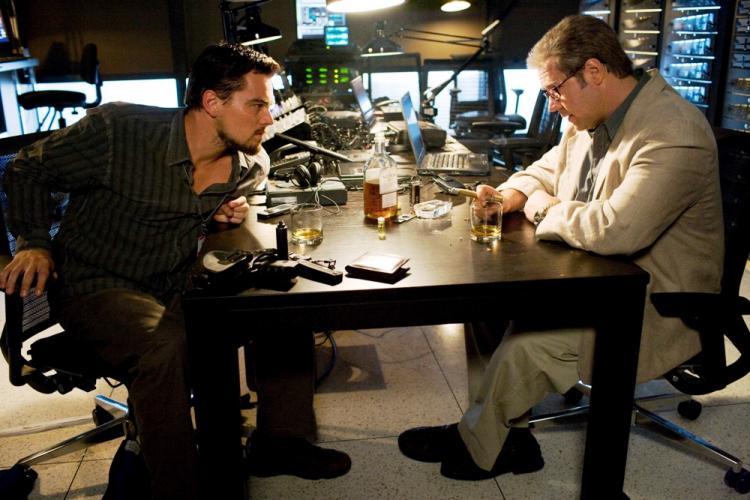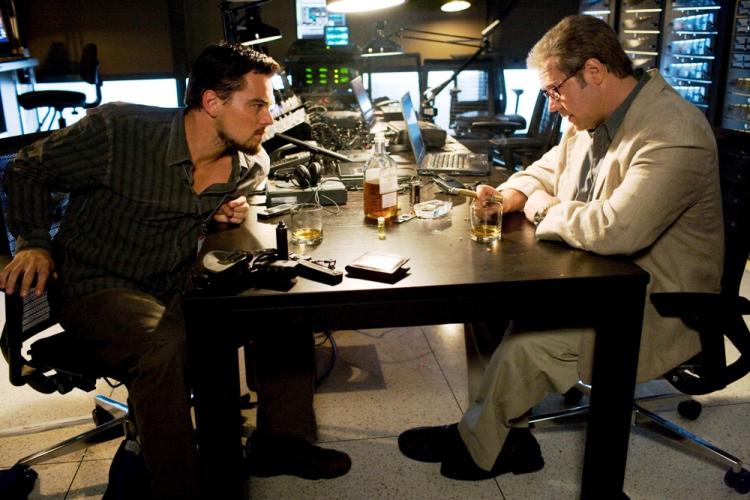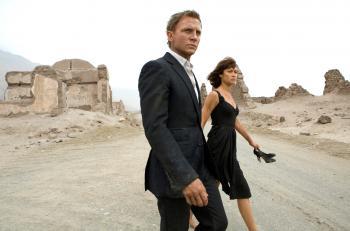With terrorism considered to be the greatest hazard of our time, out comes a movie depicting the United States’ role in espionage to combat this threat.
The intrigue of director Ridley Scott’s Body of Lies illustrates the immense deceit employed in the world of covert operations—not only against enemies but allies as well. Based on the spy thriller novel by David Ignatius, Body of Lies provides insight into the pressure and high stakes that intelligence units endure to combat the threat of terrorism.
Following his previous collaborations with Russell Crowe on Gladiator and American Gangster, Ridley Scott casts him in another thriller. While Gangster pitted Crowe against Denzel Washington, in Body of Lies we see the Australian actor trading barbs with a bearded Leonardo DiCaprio.
DiCaprio plays the lead role of Roger Ferris, an American spy who has infiltrated the world of terrorist operatives in their native lands. He is constantly switching his personality to blend in with the general populous, where any Westerner would stick out like a sore thumb. Describing the character, Ridley Scott said, “He’s integrated himself into this world. He walks the walk and talks the talk.”
Ferris’s commanding officer is Ed Hoffman (Russell Crowe) a bold, arrogant man with a Southern drawl. Hoffman lives his life in the comfort of the U.S., doing the things all suburban fathers do—picking the kids up from school, taking them to soccer practice, and doing the grocery shopping. Hoffman remains constantly available for his main contact, Ferris, who spends his days avoiding exposure and death on the streets of the Middle East.
The story’s main conflict revolves around Ferris awakening to a form of moral consciousness that defines his continuous disapproval of his superior’s orders. For example, Ferris relies heavily on native cooperatives to conduct espionage, yet Hoffman considers these people to be expendable despite the fact that they have risked their lives to help U.S. intelligence gain vital information.
One line sums up Ferris’s frustration—the way subordinates feel when their blood, sweat, and tears are leveraged by their superiors without gratitude. “Ed Hoffman is the head of the division, but he does not know nothing until he steals it from the guy on the ground, and that’s me.”
The action in Body of Lies is fast-paced with numerous intense chase scenes, relying on minimal computer graphics to enhance the special effects. One specific scene that may alarm people is when DiCaprio’s character endures a shocking blow of violence. The acting ability displayed by DiCaprio in this scene is truly exceptional. Crowe and DiCaprio truly carry the film.
The film’s production is strong, painting a clear yet fictional picture of what the vague aspects of the war on terrorism may look like—a picture of lies and deceit.
The intrigue of director Ridley Scott’s Body of Lies illustrates the immense deceit employed in the world of covert operations—not only against enemies but allies as well. Based on the spy thriller novel by David Ignatius, Body of Lies provides insight into the pressure and high stakes that intelligence units endure to combat the threat of terrorism.
Following his previous collaborations with Russell Crowe on Gladiator and American Gangster, Ridley Scott casts him in another thriller. While Gangster pitted Crowe against Denzel Washington, in Body of Lies we see the Australian actor trading barbs with a bearded Leonardo DiCaprio.
DiCaprio plays the lead role of Roger Ferris, an American spy who has infiltrated the world of terrorist operatives in their native lands. He is constantly switching his personality to blend in with the general populous, where any Westerner would stick out like a sore thumb. Describing the character, Ridley Scott said, “He’s integrated himself into this world. He walks the walk and talks the talk.”
Ferris’s commanding officer is Ed Hoffman (Russell Crowe) a bold, arrogant man with a Southern drawl. Hoffman lives his life in the comfort of the U.S., doing the things all suburban fathers do—picking the kids up from school, taking them to soccer practice, and doing the grocery shopping. Hoffman remains constantly available for his main contact, Ferris, who spends his days avoiding exposure and death on the streets of the Middle East.
The story’s main conflict revolves around Ferris awakening to a form of moral consciousness that defines his continuous disapproval of his superior’s orders. For example, Ferris relies heavily on native cooperatives to conduct espionage, yet Hoffman considers these people to be expendable despite the fact that they have risked their lives to help U.S. intelligence gain vital information.
One line sums up Ferris’s frustration—the way subordinates feel when their blood, sweat, and tears are leveraged by their superiors without gratitude. “Ed Hoffman is the head of the division, but he does not know nothing until he steals it from the guy on the ground, and that’s me.”
The action in Body of Lies is fast-paced with numerous intense chase scenes, relying on minimal computer graphics to enhance the special effects. One specific scene that may alarm people is when DiCaprio’s character endures a shocking blow of violence. The acting ability displayed by DiCaprio in this scene is truly exceptional. Crowe and DiCaprio truly carry the film.
The film’s production is strong, painting a clear yet fictional picture of what the vague aspects of the war on terrorism may look like—a picture of lies and deceit.






